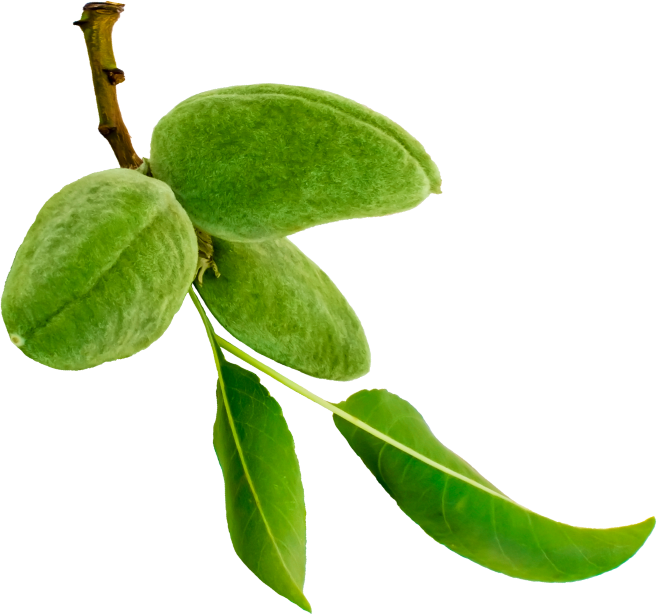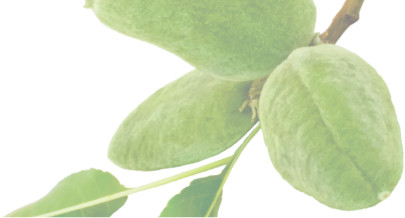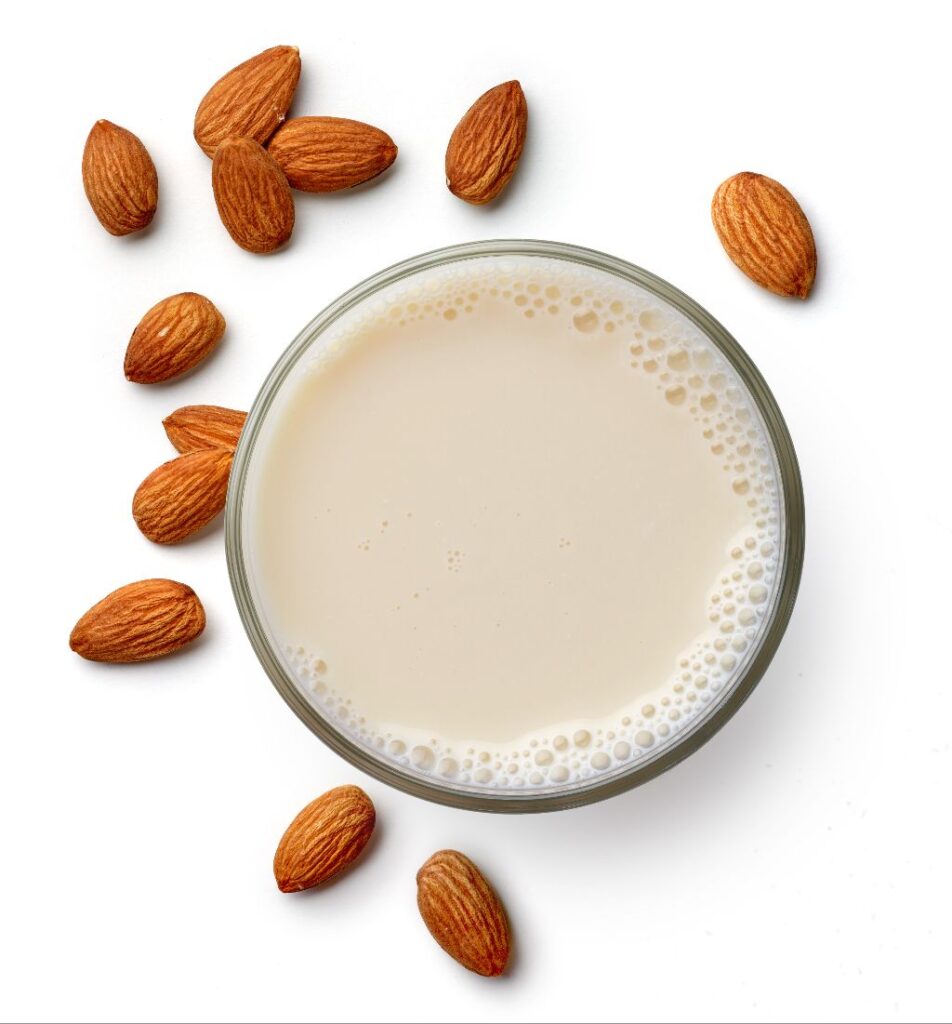While the answer may seem straightforward, several factors—from picking the right vegan almond milk base to environmental considerations—play a role in determining if almond milk is vegan. Exploring these aspects can provide clarity and confidence in choosing almond milk that truly fits the customer’s vegan lifestyle and plant-based trends.











Can Almond Milk Be Considered Fully Vegan?


For those in the food industry, understanding the nuances of its vegan classification is important when making sourcing and formulation decisions.
What Does Vegan Mean in Food Manufacturing?
Veganism in the context of food goes beyond excluding animal-derived ingredients. It also considers the methods used in production and the ethical implications of sourcing. A product is considered vegan if it contains no animal products and if its production does not involve animal exploitation at any stage. This comprehensive approach ensures that the food aligns with the ethical and dietary standards, and this is maintained throughout the supply chain.
It also underscores the importance of transparency and accountability in the supply chain, encouraging manufacturers to adopt practices that respect animal welfare and environmental sustainability.
Is Almond Milk Vegan? Key Aspects to Consider
 Determining whether almond milk is genuinely vegan goes beyond its plant-based reputation. It involves closely evaluating ingredients, vitamin fortifications, agricultural practices, and production processes. Here’s a detailed breakdown of each essential factor to ensure your almond milk aligns fully with vegan principles:
Determining whether almond milk is genuinely vegan goes beyond its plant-based reputation. It involves closely evaluating ingredients, vitamin fortifications, agricultural practices, and production processes. Here’s a detailed breakdown of each essential factor to ensure your almond milk aligns fully with vegan principles:
What Goes Into Almond Milk
Almond milk is made by blending almonds with water and then straining the mixture to remove solids, resulting in a smooth, plant-based beverage. This basic preparation is inherently vegan, as it involves only plant-derived components.
However, commercial almond milk often includes additional ingredients to enhance flavor, texture, and shelf life. Common additives include sweeteners, emulsifiers, and stabilizers. While many of these are plant-based, some may not be. For instance, certain emulsifiers and stabilizers can be derived from animal sources.
Choosing Vegan-Safe Vitamins for Almond Milk
To boost its nutritional profile, almond milk is frequently fortified with vitamins and minerals. Vitamin D is a common addition, but it’s important to distinguish between its forms. Vitamin D2 is plant-based and suitable for vegans, while Vitamin D3 is often derived from animal sources, such as lanolin from sheep’s wool. However, vegan-friendly D3 sourced from lichen is also available. Ensuring that the fortified vitamins in almond milk are plant-derived is essential for maintaining the vegan integrity of your products.
Sourcing Almonds Sustainably for Vegan Milk
The environmental considerations of almond milk production are multifaceted. Almond cultivation requires significant water resources, particularly in regions prone to drought. Additionally, some large-scale almond farming often relies on commercial beekeeping for pollination. This practice can stress bee populations, leading to concerns about their well-being.
However, not all almond farming practices are the same. Some producers employ sustainable methods that minimize water usage and avoid harmful pesticides, thereby reducing the impact on bee populations. Engaging with suppliers who prioritize environmentally friendly practices ensures that the almond milk you use for your products aligns with both vegan and ecological values.
READ: Harris Woolf Almonds’ Sustainability Report
Almond Milk Production and Facility Standards
Almond milk production begins with soaking almonds to soften them, followed by blending with water to create a smooth mixture. This mixture is then strained to separate the liquid from the almond pulp. To ensure consistency and safety, the almond milk undergoes pasteurization and homogenization. However, if the production facilities handle both vegan and non-vegan products, there’s a risk of cross-contamination.
To mitigate this, manufacturers implement thorough cleaning protocols between production runs and may seek vegan certifications that require audits of their processes. These measures help ensure that the almond milk remains free from unintended animal-derived components, aligning with vegan standards.
READ: How Almond Milk is Processed
How To Identify Vegan Almond Milk
Ensuring that almond milk aligns with vegan standards involves careful consideration of several factors. Here are some practical steps to help you verify the vegan status of almond milk:
- Examine the Ingredient List: Take a close look at the ingredients and talk to suppliers to spot any animal-derived additives, such as certain emulsifiers, stabilizers, or flavorings.
- Check for Fortification Sources: If the almond milk is fortified with vitamins, it’s important to determine the source of these nutrients to ensure they are fully aligned with vegan principles.
- Review Production Practices: Inquire whether the manufacturing facility uses shared equipment with non-vegan products and what cleaning protocols are in place to prevent cross-contamination.
- Seek Vegan Certifications: Look for products certified by reputable vegan organizations, as these have undergone thorough evaluations to ensure they meet strict vegan criteria.
- Contact Manufacturers: If you’re unsure, reaching out directly to the manufacturer can provide clarity on their production processes and ingredient sourcing.
Build Better Vegan Formulas with a Trusted Almond Partner
Understanding the nuances of almond milk production and its alignment with vegan standards is crucial for developing products that meet the expectations of discerning consumers. Selecting almond milk that adheres to these standards satisfies ethical considerations and resonates with a growing market seeking plant-based alternatives.
At Harris Woolf Almonds, we are committed to producing high-quality, vegan-friendly almond products. Our sustainable farming methods prioritize water conservation and responsible pesticide use, reflecting our dedication to environmental stewardship. Our almond milk base, known for its plant-based formulation, seamlessly integrates into various applications, catering to the needs of vegan diets.
Explore our offerings and collaborate with us to create tailored almond-based ingredients that align with your product development goals. Request a sample today!
Creating standout vegan products starts with understanding the essentials of almond milk production and how it fits within plant-based standards. Choosing the right almond milk base ensures your formulations align with ethical preferences and meet the expectations of today’s health-conscious consumers.
At Harris Woolf Almonds, we provide premium, vegan-friendly almond ingredients crafted to support innovative product development. Our vegan almond milk base is designed for versatility and performance, making it an ideal choice for a wide range of plant-based applications. Produced with care, including thoughtful approaches to resource use and farming practices, it’s a solution you can trust.
Partner with us to develop almond-based ingredients tailored to your brand’s goals. Contact us to learn more or to request a sample today!
